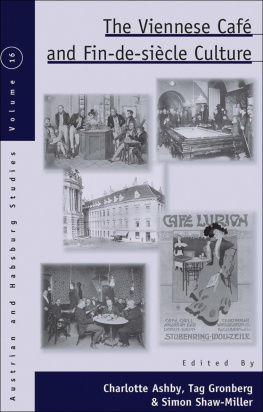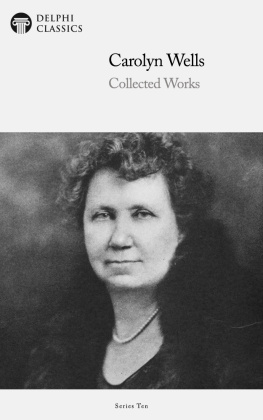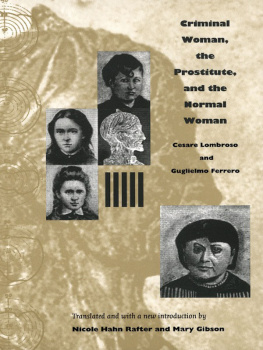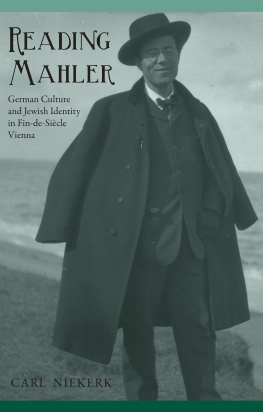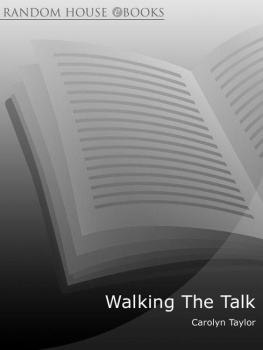Elizabeth Carolyn Miller - Framed: The New Woman Criminal in British Culture at the Fin de Siecle
Here you can read online Elizabeth Carolyn Miller - Framed: The New Woman Criminal in British Culture at the Fin de Siecle full text of the book (entire story) in english for free. Download pdf and epub, get meaning, cover and reviews about this ebook. year: 2018, publisher: University of Michigan Press and University of Michigan Library, genre: Home and family. Description of the work, (preface) as well as reviews are available. Best literature library LitArk.com created for fans of good reading and offers a wide selection of genres:
Romance novel
Science fiction
Adventure
Detective
Science
History
Home and family
Prose
Art
Politics
Computer
Non-fiction
Religion
Business
Children
Humor
Choose a favorite category and find really read worthwhile books. Enjoy immersion in the world of imagination, feel the emotions of the characters or learn something new for yourself, make an fascinating discovery.
- Book:Framed: The New Woman Criminal in British Culture at the Fin de Siecle
- Author:
- Publisher:University of Michigan Press and University of Michigan Library
- Genre:
- Year:2018
- Rating:3 / 5
- Favourites:Add to favourites
- Your mark:
- 60
- 1
- 2
- 3
- 4
- 5
Framed: The New Woman Criminal in British Culture at the Fin de Siecle: summary, description and annotation
We offer to read an annotation, description, summary or preface (depends on what the author of the book "Framed: The New Woman Criminal in British Culture at the Fin de Siecle" wrote himself). If you haven't found the necessary information about the book — write in the comments, we will try to find it.
Framed: The New Woman Criminal in British Culture at the Fin de Siecle — read online for free the complete book (whole text) full work
Below is the text of the book, divided by pages. System saving the place of the last page read, allows you to conveniently read the book "Framed: The New Woman Criminal in British Culture at the Fin de Siecle" online for free, without having to search again every time where you left off. Put a bookmark, and you can go to the page where you finished reading at any time.
Font size:
Interval:
Bookmark:

The New Woman Criminal in British Culture at the Fin de Sicle
ELIZABETH CAROLYN MILLER
The University of Michigan Press AND The University of Michigan Library
ANN ARBOR
Copyright 2008 by Elizabeth Carolyn Miller
All rights reserved
Published in the United States of America
by The University of Michigan Press and
the University of Michigan Library
Manufactured in the United States of America Printed on acid-free paper
Printed on acid-free paper
2011 2010 2009 2008 4 3 2 1
No part of this publication may be reproduced, stored in a retrieval system, or transmitted in any form or by any means, electronic, mechanical, or otherwise, without the written permission of the publisher.
A CIP catalog record for this book is available from the British Library.
Library of Congress Cataloging-in-Publication Data
Miller, Elizabeth Carolyn, 1974
Framed : the new woman criminal in British culture at the fin de sicle / Elizabeth Carolyn Miller.
p. cm.
Includes bibliographical references and index.
ISBN-13: 978-0-472-07044-2 (acid-free paper)
ISBN-10: 0-472-07044-4 (acid-free paper)
ISBN-13: 978-0-472-05044-4 (pbk. : acid-free paper)
ISBN-10: 0-472-05044-3 (pbk. : acid-free paper)
1. Detective and mystery stories, EnglishHistory and criticism. 2. English fiction19th centuryHistory and criticism. 3. Female offenders in literature. 4. Terrorism in literature. 5. Consumption (Economics) in literature. 6. Feminism and literatureGreat BritainHistory19th century. 7. Literature and societyGreat BritainHistory19th century. 8. Detective and mystery filmsGreat BritainHistory and criticism. 9. Women in popular cultureGreat BritainHistory19th century. I. Title.
PR878.D4M55 2008
823'.087209dc22 2008015026
ISBN-13 978-0-472-02446-9 (electronic)
It is the keenest of pleasures to have the opportunity to thankwith all the authority of printthe many people who have helped me write this book. Framed began as my doctoral dissertation at the University of WisconsinMadison, and my first and foremost thanks go to Susan David Bernstein, Caroline Levine, and Rebecca Walkowitz; they have been the most generous and stalwart of mentors, and their support was only beginning on the day I submitted my dissertation. I would also like to thank Anne McClintock and Kelley Conway, who served on my dissertation committee and offered brilliant advice. At Madison, I owe thanks to more people than I could possibly enumerate, but I am especially grateful to Jacques Lezra and Susanne Wofford, for their inspiration and encouragement; to Bob Baker and Joseph Wiesenfarth, for initiating me into the study of Victorian literature; to David Bordwell, whose film theory class opened my eyes to a whole new way of thinking about visuality; and to Theresa Kelley and Mario Ortiz-Robles. Support from the Department of English helped me complete my dissertation, and Wisconsin's International Institute provided me with a crucial yearlong fellowship to the University of Warwick, which allowed access to key archival materials in England. Thanks to Jacqueline Labbe for directing my work during my year at Warwick.
I wrote most of this book while I was a postdoctoral fellow at the University of Michigan, and I would like to thank the Public Goods Council, Francis X. Blouin, and the Mellon Foundation for the precious Page vi time this fellowship gave me. I am eternally grateful to John Kucich, Jonathan Freedman, and Adela Pinch for their expert feedback on my book manuscript, and for their much-appreciated encouragement. I would also like to thank Martha Vicinus for her wise and generous guidance, Robert Aguirre for his friendship and advice, and the Nineteenth-Century Forum at Michigan. My colleagues at Ohio University offered friendship and support in the final stretch of this project. Special thanks to Johnnie Wilcox, for helping me format images for the book, and to Josie Bloomfield, Andrew Escobedo, George Hartley, Paul Jones, Joseph McLaughlin, Beth Quitsland, Nicole Reynolds, Catherine Taylor, and Jeremy Webster. The National Endowment for the Humanties seminar The Oscar Wilde Archive, held at the Clark Library at UCLA, came as an unexpected boon in the summer of 2007. Thanks to Joe Bristow and my fellow seminar participants, who enriched my understanding of Wilde and indulged my passion for Vera. By the time this book is published, I will have begun a new position at the University of California, Davis, and I would like to thank my new colleagues in the English Department for their insights and ideas as I completed the book manuscript.
An early version of appeared in the Henry James Review. Librarians at a wide range of institutions have offered assistance: thanks especially to the Bodleian Library, the British Film Institute, the British Library, the Colindale Newspaper Library, the Special Collections Library at the University of Michigan, and the Library of Congress. The VICTORIA listserve has provided an online scholarly community and many good leads. I am grateful to everyone at the University of Michigan Press, especially Alison MacKeen for her enthusiastic editorial stewardship, and Marcia LaBrenz.
Numerous friends and colleagues have directly or indirectly helped me finish this book. My friends Laura Vroomen, Lucy Frank, Margaret Ann, and Henry Escudero offered hospitality during various under-funded research trips to England, for which I thank them. Among my graduate school friends, I learned a great deal from Thomas Crofts, Christine Devine, Deirdre Egan, Melissa Huggins, Matt Hussey, Mike LeMahieu, Kristin Matthews, Jack Opel, Elizabeth Rivlin, John Tiedemann, Janine Tobeck, and Laura Voracek. Rich Hamerla, Cathy Kelly, and Todd Shepard extended their friendship and camaraderie during my year at the University of Oklahoma, as did Michael Alexander, Kathy Gudis, and Ronald Schleifer. Other dear friends to whom I owe thanks include Meredith Alt, Angie and Scott Berkley, Lawrence Daly, Chris Page vii Frederick, Julie Gardner and Ashley Stockstill, Gretchen Larsen, Laura Larson, Alison O'Byrne, Ji-Hyae Park, Marina Peterson, Jane Poyner, and Jenny Terry.
Finally, I come to my family. I owe more than I can say to my parents, sisters, and grandparents: Jim and Phyllis Ghiardi, Cathy Miller, Cristina Miller, Frank Miller and Ellen Powers, Rhea Miller, and Sarah Miller and Jon Konrath. Thanks also to Mary and Rich Merlie, Vickie Simpson, Stephanie Beltz, and the Stratton clan. This book is dedicated to Matthew Stratton, whom I met on the first day of graduate school, and who has challenged and enriched my thinking ever since. I am deeply grateful for his love and companionship (not to mention his many meticulous readings of the following chapters).
Sherlock Holmes and the Invisible Woman
Cosmetics, Consumerism, L. T. Meade, and Madame Rachel
Class, Gender, and Authority in Early British Cinema
Gender in James's and Conrad's Novels of Failed Terror
Female Revolutionaries in Late-Victorian Dynamite Narrative
- Page xii
In 1901, R. W. Paul, one of Britain's first filmmakers, released The Countryman and the Cinematograph, a film that reflexively explains cinema just five years into this new narrative form. It depicts a countryman at the movies, who mistakes cinematic illusion for real-world phenomena: he attempts to dance with a lovely on-screen dancing girl ( Movies that mocked the ignorant or uninitiated film viewer were common at the turn of the century; they served as elementary primers on cinema spectatorship, disseminating a culture and ethics of audience behavior for a new form of narrative entertainment.
Font size:
Interval:
Bookmark:
Similar books «Framed: The New Woman Criminal in British Culture at the Fin de Siecle»
Look at similar books to Framed: The New Woman Criminal in British Culture at the Fin de Siecle. We have selected literature similar in name and meaning in the hope of providing readers with more options to find new, interesting, not yet read works.
Discussion, reviews of the book Framed: The New Woman Criminal in British Culture at the Fin de Siecle and just readers' own opinions. Leave your comments, write what you think about the work, its meaning or the main characters. Specify what exactly you liked and what you didn't like, and why you think so.



